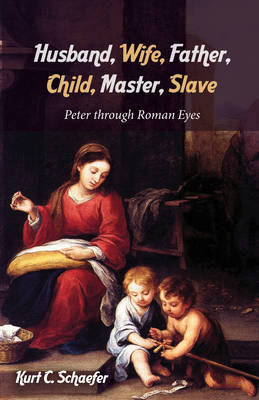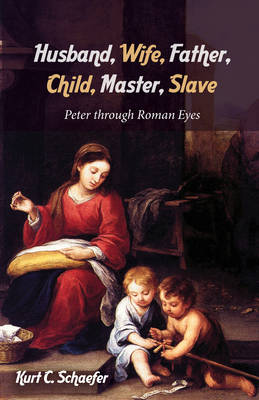
- Afhalen na 1 uur in een winkel met voorraad
- Gratis thuislevering in België vanaf € 30
- Ruim aanbod met 7 miljoen producten
- Afhalen na 1 uur in een winkel met voorraad
- Gratis thuislevering in België vanaf € 30
- Ruim aanbod met 7 miljoen producten
Zoeken
Husband, Wife, Father, Child, Master, Slave
Peter Through Roman Eyes
Kurt C Schaefer
Paperback | Engels
€ 33,45
+ 66 punten
Uitvoering
Omschrijving
When the New Testament speaks of slaves and masters, is it affirming an institution that we find reprehensible? Biblical scholars across the theological and political spectrum generally conclude that the answer is "yes." And in the same passages the Bible seems to affirm male dominance in marriage, if not in society at large. This book meticulously places these passages, the Bible's "household codes," in their historical and literary context, focusing on 1 Peter's extensive code. A careful side-by-side reading with Rome's cultural equivalent (Aristotle's household code) reveals both the brilliance of the biblical author and the depth of 1 Peter's antipathy toward slavery and misogyny.
Specificaties
Betrokkenen
- Auteur(s):
- Uitgeverij:
Inhoud
- Aantal bladzijden:
- 152
- Taal:
- Engels
Eigenschappen
- Productcode (EAN):
- 9781532640636
- Verschijningsdatum:
- 15/02/2018
- Uitvoering:
- Paperback
- Formaat:
- Trade paperback (VS)
- Afmetingen:
- 140 mm x 213 mm
- Gewicht:
- 204 g

Alleen bij Standaard Boekhandel
+ 66 punten op je klantenkaart van Standaard Boekhandel
Beoordelingen
We publiceren alleen reviews die voldoen aan de voorwaarden voor reviews. Bekijk onze voorwaarden voor reviews.








